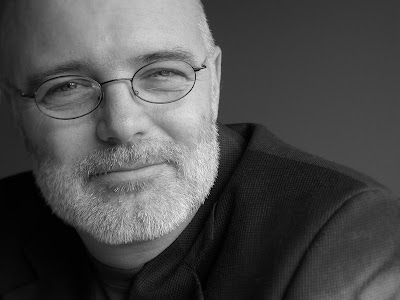
This was supposed to be included in Jesus Needs New PR…
AMERICA’S JESUS ALL OVER THE WORLD
The following is an interview with Brian McLaren, author of Everything Must Change, The Secret Message of Jesus, and A New Kind Of Christian. In recent months, Brian’s travels have taken him all over the world and given him the opportunity to worship Jesus among different cultures in four continents. I spoke with Brian about how America’s form of Jesus affects the world.
MATTHEW: Brian, in recent months you’ve had the chance to travel all over the world; what did you learn about your own spirituality while celebrating Jesus around the globe?
BRIAN: Honestly, the first thing that comes to mind is that travel is hard work – it’s tiring both physically and emotionally, and when one is trying to sincerely engage with each group and person, there’s a spiritual toll too. So, the biggest thing I learned is the need for “Sabbath”—for down time to rest, including resting from “serving the Lord” if that makes sense.
On a more relevant note, I realized more than ever what an echo chamber the United States is, and how crushingly dominant it is—not only militarily and financially and culturally, but also spiritually. Exported U.S. televangelists, exported U.S. speakers, exported U.S. religious fads are dominating the Christian community around the world—it’s like a massive spiritual McDonald’s franchise replacing the native spices and flavors and home cooking of each culture. So, I learned again how much I need to listen to voices from our brothers and sisters who aren’t part of the echo chamber. I came back with a long list of African and Latin American theologians I need to read and ponder.
MATTHEW: Were you ever the least bit uncomfortable when experiencing another culture’s celebration of Jesus? If so, how and why?
BRIAN: The biggest discomfort for me was hearing, for example, U.S. contemporary Christian worship music being sung in translation around the world. I was so grateful for each time when the worship of each culture was original and indigenous; I found that moving and encouraging, never uncomfortable.
From your unique perspective as an author who more often than not steers “far left” from the Christian mainstream in America, what do you believe are three important changes American’s must make regarding the PR of Jesus in this culture?
As you probably know, Matthew, my hope is that we can move from the left-right polarization to “higher ground.” To do that, I think we need to do some deep theological rethinking—not to align our understanding with “postmodernity” (or modernity either) but to align our understanding with Jesus as found in the Gospels.
That will mean at least three things:
One: Seeing how Jesus’ message was truly timely, not just “timeless,” which means to discover the radical applicability of Jesus’ message to what we would call the politics of his time. That message was not a defense of the status quo, but its overturning—it was a confrontation with his fellow Jews who compromised with the powers of empire, greed, and fire, calling them to repent (rethink everything) and seek the kingdom of God. It was a message that showed God’s solidarity with the poor and oppressed, not the “establishment.”
Two: Seeing, that for Jesus, the key issues were not simply matters of sexuality, as important as sexuality is. Rather, for Jesus, the key issues were money and power. What would happen if we applied Jesus’ teachings and example to money and power in our culture?
Three: Seeing that Jesus called his disciples to a life of radical commitment, not simply to right opinion about esoteric religious lore.
MATTHEW: As you conversed to Christians and non-Christians in different countries, what, if anything about America’s Christianity offends those in other parts of the world? How are their offenses all that different from those voiced by non-Christians in America?
BRIAN: This is a huge question. But the bottom line: I didn’t meet a single Christian anywhere in my travels (except for a few U.S. missionaries) who is not deeply disturbed about U.S. foreign policy and economic policy, and they can’t believe that Christians in America actually support U.S. policy—which to them seems so anti-Christian. As well, they are appalled that many Christians have stood against concern about the environment—although they’re encouraged to hear that other Christians are speaking up with a deeply theological concern for creation care.
MATTHEW: What have you witnessed in the Christianity of other countries that you imagine might be offensive to the average American Christian?
BRIAN: In addition to the widespread and deep distaste for U.S. foreign, economic, and environmental policy, there are a number of things. In Europe, it is very common for Evangelicals to drink alcohol, which would scandalize some Evangelicals here. In Africa and Latin America, many Evangelicals feel the importance of caring for the poor—which seems more “liberal” than here, but there is a lot of concern about things like wearing make-up or sleeveless dresses or shorts, or failing to wear a tie to church (in some settings), which would seem more “conservative” than here. The “rules” are simply different.
MATTHEW: Does Christianity in America bring any unique perspectives that aid humanities’ understanding of Jesus throughout the world? If so, what?
BRIAN: Americans tend to have a “can-do” attitude, which is helpful in some ways, and harmful in others. The fact is, nearly all of our perspectives have been so widely exported that there is no shortage of American influence anywhere; I would say the opposite is more the case.
MATTHEW: Would you please share any advice you might have for America’s Christians who are representing Jesus in today’s culture, perhaps ideas or virtues you personally adhere to?
BRIAN: American Christians need humility and a willingness to listen to our brothers and sisters from around the world. We need to be suspicious for the ways that wealth and power have already subverted the purity of our faith and successfully tempted us to remake Jesus in our own image.
MATTHEW: When someone approaches you who has been hurt (or even abused) by America’s “ugly” version of Jesus, how do you encourage them?
BRIAN: In my recent trip to Latin America, I had several people say almost the identical thing to me (in Spanish): “I heard you were coming and I was very cynical. I expected you to be another typical arrogant gringo telling us how to do things, as if we don’t know anything. Thankfully, you were not what I expected. You actually listen to us. You respect us. You seem like you’re here not just to preach, but also to learn. You seem to realize that America isn’t God’s chosen nation.” So, I guess it wasn’t what I said that helped them; if anything it was simply that I listened and tried to learn, believing that God is at work among them in a unique way.
Viagra is for the treatment of inability to get or keep an erection and similar states when erection is of low quality. When you buy remedies like cialis from canada you should know about cialis online canada. It may have a lot of brands, but only one ATC Code. Erectile disfunction, defined as the persistent impossibility to maintain a satisfactory erection, affects an estimated 15 to 30 millions men in the America alone. Sexual heartiness is an substantial part of a man’s life, no matter his age etc.





so why didn’t this make it into the book?
my two cents…
1) I’ve read and heard enough from Mclaren.
2) Most American Pastors now refer to themselves as “followers of Christ”. Mclaren considers himself a “follower of Christ”. Ghandi considered himself a “follower of Christ”. The Dali Lama considers himself a follower of Christ.None of the latter three speak as to the ATONEMENT and the BLOOD of Christ. Myself? I follow the Chicago Cubs.
2) It’s ridiculous for McLaren or anyone else to use “the American Church” as a political pawn the way he does. As much as 80% of American Christians are “people who said a prayer” not in fact Born Again Christians. So it’s pathetic to say that American Christianity represents Jesus in the first place. A LONG time ago evangelism became a NUMBERS game. We are a people who create “experiences ” and manipulate peoples emotions… they say a prayer before they even think about the COSTS… we chalk one more up and they walk away ever battling doubts confident in the prayer they said.
3) The Holy Spirit represents Jesus. MANY in the Church (Pastors included) are Lost as can be… their lives are not led by the Spirit. Look around… our worship services are about the FLESH. The senses MUST be addressed because an emotional experience has replaced solid Bible teaching and discipleship, Godly sorrow and Repentance. WORKS and Social Justice are the fillers for opiating the carnal conscience.
4) Our creativity, our innovations, our “vision casting” our egos and our cleverness have replaced the cornerstone. We’ve become a people of self promotion. We aren’t broken and humble, we are smooth, we are slick, we are successful, we are appealing to the flesh. We are approved by the World. The pale echoes of the martyrs haunt us.
-Jud
This comment has been removed by the author.
@jud
“I follow the Chicago Cubs.”
heartbreaking. repent, follow the redbirds…before it’s too late.